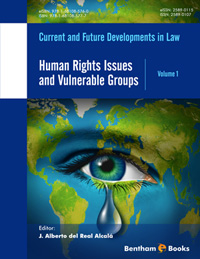Abstract
The Convention on the Rights of Persons with Disabilities places disability in the human rights discourse and, at the same time, enriches the common heritage of human rights in so far as it is much more than a treaty concerning exclusively persons with disabilities. It imposes a new legal construction of “disability” focused on objective situations rather than subjective identities. Consequently, the notion of “person with disabilities” which denotes the subject entitled to rights is presented as an open and expansive concept, whose meaning goes beyond the circle of persons belonging to certain and predetermined vulnerable groups. Besides, through the “universal design” and “reasonable accommodation” strategies and the “nondiscrimination on the basis of disability” clause, the status of “right-holder”, according to the Convention, potentially opens itself up to a universal application. In the chapter, the guiding principles of Convention are reviewed, underlining the importance of legal capacity and accessibility as de jure and de facto prerequisites, respectively, for persons with disabilities to be able to exercise their rights in a real and effective manner.
Keywords: accessibility, Convention on the Rights of Persons with Disabilities, legal capacity, non-discrimination, social disability model.













